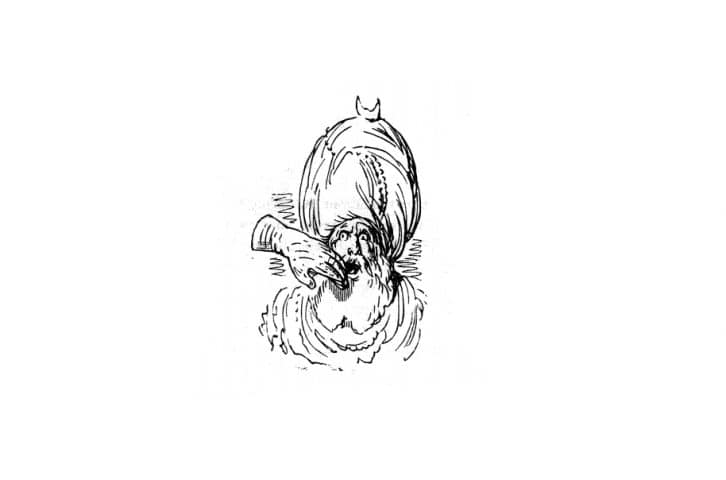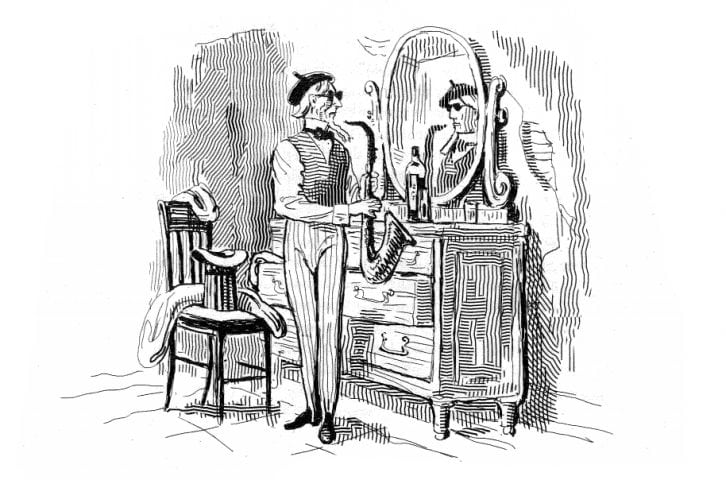Books Reviewed
A review of a The Courage to Be Catholic: Crisis, Reform, and the Future of the Church, by George Weigel
The thesis of this blunt and very readable book is that the Catholic Church in the United States is going through the worst crisis in its long history. The immediate cause of this unexpected crisis is the sexual crimes and disorders of a minority of the clergy, most commonly homosexual activity directed towards boys and young men. Although there were several cases of pedophilia properly so called, this heinous aberration was not the major problem and occurred with less frequency in the Catholic clergy than in the rest of the population.
All such deeds are explicitly condemned by long-standing and well-articulated Catholic teaching. But in a way this only deepened the scandal. What was shocking was to discover so many Catholics in clerical positions not living up to what they were ordained precisely to uphold.
The crisis was compounded by the widespread failure of responsible bishops and religious superiors at almost every level to deal frankly and effectively with the issue. The Catholic public, and probably much of the nation, were more concerned with lack of leadership in a Church that evidently prided itself on religious authority than they were by the sins and disorders themselves, which sins and disorders are in fact abundant in contemporary culture.
The crisis, moreover, was not brought to the attention of the bishops and the Vatican primarily by elements within the Church, as it ought to have been. Instead, the problem became visible as a result of lawsuits, huge liability payments, and the damaging and embarrassing publicity that followed in the national press. With the exception of a few brave, but often ridiculed and ignored, journals, the Catholic press didn't touch the issue.
Weigel deals candidly with Rome's responsibility for this crisis. He admits that Roman dicasteries were slow, even "sluggish," in understanding the American Church's disorder. He presents a careful discussion of how bishops are appointed, how Rome must rely on reports from the local church, how bishops had often not told the Pope the truth about what was going on back home. He perhaps lets John Paul II off too easily, since this pope has appointed or promoted most of the bishops who caused the problem in the first place. But Weigel cautions, rightly, that the Church is not simply a "pyramid" of power; and he provides an excellent analysis of the whole nature of the episcopal office, the Conference of Bishops, and their selection and training. He notes that we have had very few academic bishops and fewer charismatic ones.
Though some Church defenders claim that the scandals are based on anti-Catholic prejudice, George Weigel doesn't agree. This honorable approach leads him to see in the crisis an opportunity to deal with problems long neglected at every ecclesiastical level. Hence the word "reform" in the book's subtitle, which leads Weigel to an excellent historical and theological exposition of what is meant by "reformation" within Christianity.
In part, this book is a polemic against those within the Church who see the deepest source of the crisis as the Church's failure to align itself with "modernity" or "the modern world." The Church, it is claimed, needs to accept within its very structures the modern revolutions of sex and democracy. The teachings about its internal order and its understanding of human nature need to be replaced by contemporary ideas welcoming such things as abortion, cloning, divorce, popular election of bishops, and married clergy. Weigel points out that these "reforms" have often been tried in mainline Protestant churches, which is one reason they are everywhere in decline. Weigel argues, instead, that what the Church in the United States needs to do is recover its authentic self, to practice those virtues and principles that make it honorably distinct.
The book's real hero is John Paul II. In almost every respect, he is an extraordinary and great man, having lived through the two great tyrannies of the last century; studied deeply the nature of modern philosophy; understood the true nature and beauty of marriage and human love; and having been loved by millions and millions, and especially by young men and women.
Weigel, whose biography of John Paul II is justly admired, has absorbed the teaching and example of the present Holy Father both as to what the Church is and what the place and life of the clergy within it ought to be. In fact, this is, in the end, a surprisingly positive book.
Within the Catholic Church, a tradition from Augustine and Paul affirms that all things, even sin, work to the good. What is remarkable about this crisis within the Church is the almost uncanny way it points to a crisis, almost unacknowledged, outside the Church. Chesterton once remarked that what bothers the world about monks is not those few who do not live by their vows, but the many who do. In today's culture, the widespread scandal of homosexuality within the Catholic clergy could be, and sometimes is seen to be, merely the other side of the promotion of homosexuality as a "human right" within secular society. And if it is indeed such a "right," then what ought to be chastised are not those who practice homosexual acts in the clergy, even on minors (this latter "freedom" is being actively promoted by segments within the homosexual movement), but those who "discriminate" against them by criticizing their acts.
What is ironic is that the secular culture seems to be taking the lead in calling the Catholic clergy back to what it ought to be. Sins have consequences, and few within the American public or media have any trouble understanding this fact, which lends credence to Weigel's general thesis that a true reform in the Church is needed and even desired by the general public. Catholics, especially the clergy, ought to live according to what the Church preaches, granted that sinning and its forgiveness are part of the very essence of the Church. This reform is what the culture itself seems to expect and even desire. The scandal of clergy not living up to what they preach—and bishops not insisting on this proper life—turns out to be as much a secular as a religious one.
The old phrase "God writes straight with crooked lines" seems apt here. If the Church's leadership, left to itself, won't inspire and insist that its members live as they ought, God nonetheless will find a way. And if our secularists insist, somewhat paradoxically, that certain sins and disorders are liberties for themselves but sins for the Catholic clergy, then God may reveal to our well-meaning secularists why they too dread to practice what they preach—and for good reason.


